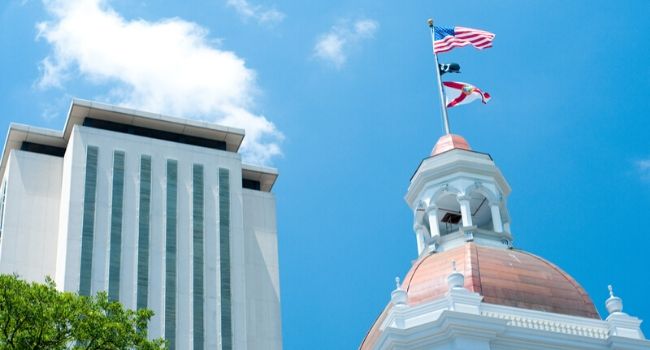
Florida House Presents New School Safety Bill Focusing on Enforcing School District Compliance
The legislation includes measures for the state education commissioner to enforce security laws already on the books.
- By Haley Samsel
- January 31, 2020
Following a grand jury report criticizing school compliance with safety requirements, the Florida House approved a school safety package that gives the state education commissioner more ways to enforce security laws.
The Marjory Stoneman Douglas High School Public Safety Commission was first created two years ago following the tragic shooting in Parkland, Florida. The grand jury issued a report in December that pointed out consistent issues with charter schools meeting requirements to have an armed school resource officer on their premises.
“Based on what we have heard, it appears many school districts have taken the position that charter schools are somehow outside their governance,” the report read. “We want to make the following clear: Charter schools are public schools … If the charter schools are noncompliant with state law, it is up to their school districts to get them into compliance or revoke their charters.”
Commissioners called for legislators to appoint a state agency -- the Florida Department of Education -- to enforce compliance. Now, a new bill from the House Education Committee would enforce accountability by directing the education commissioner to withhold pay from district superintendents if they do not comply with the school safety mandates already in law.
“This bill basically sharpens our pencil,” Republican Rep. Ralph Massullo, who presented the committee bill, told NPR station WFSU. “It provides a little bit better method for the districts and the individuals involved to administer school safety.”
The superintendent pay measure was not included in a Senate school safety bill introduced earlier this month and is concerning some school officials. Other elements of the bill include giving the commissioner the power to require actions from charter schools to comply if they are found in non-compliance.
Under the House version of the bill, school safety officers would be required to be trained on how to intervene before a crisis happens. This crisis intervention training would be required from school guardians, private security, school resource officers and school safety officers hired by the districts, Massullo said.
The legislation would require schools to have a student-parent reunification plan after an incident and also allow for students to be put into a civil citation or pre-arrest diversion program rather than be arrested or expelled, according to WFSU.
“What the amendment does is provide access to education for those kids, either through an in-school suspension, either at that school or another school, through another educational opportunity such as virtual school, or some other opportunity that may be available to them,” Massullo said.
About the Author
Haley Samsel is an Associate Content Editor for the Infrastructure Solutions Group at 1105 Media.